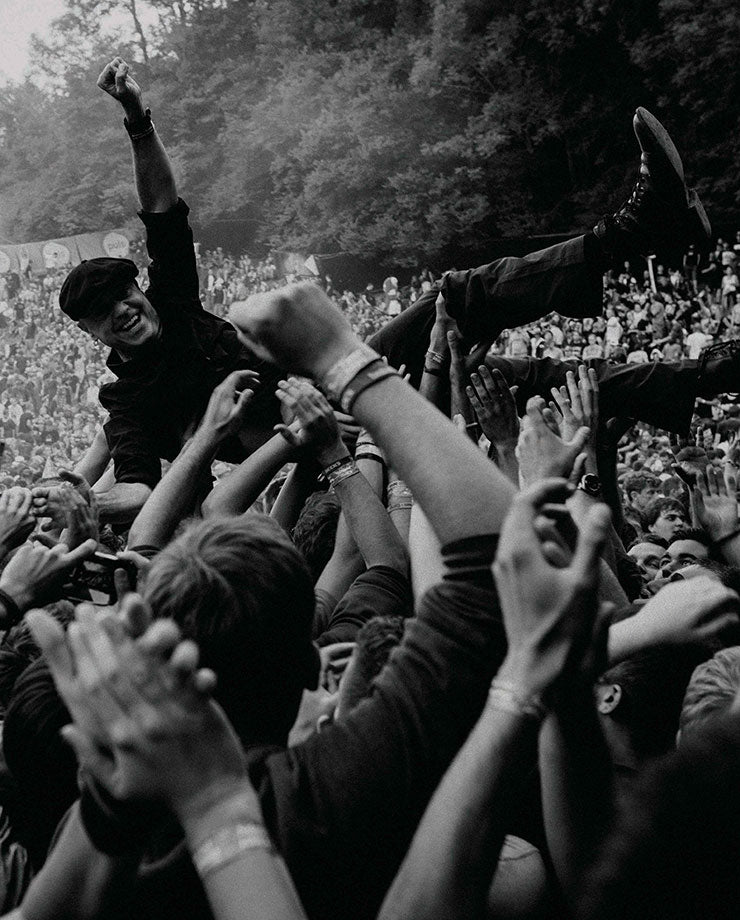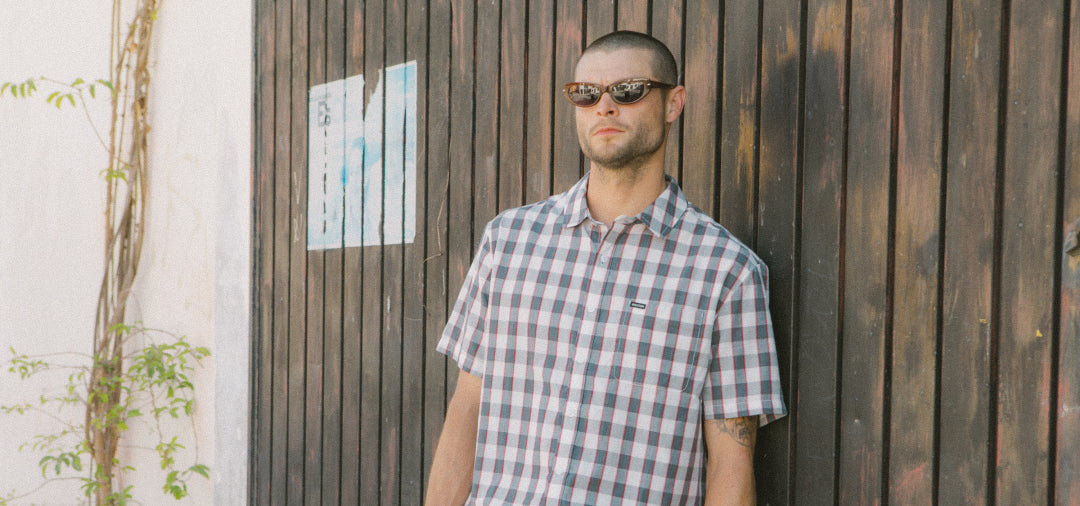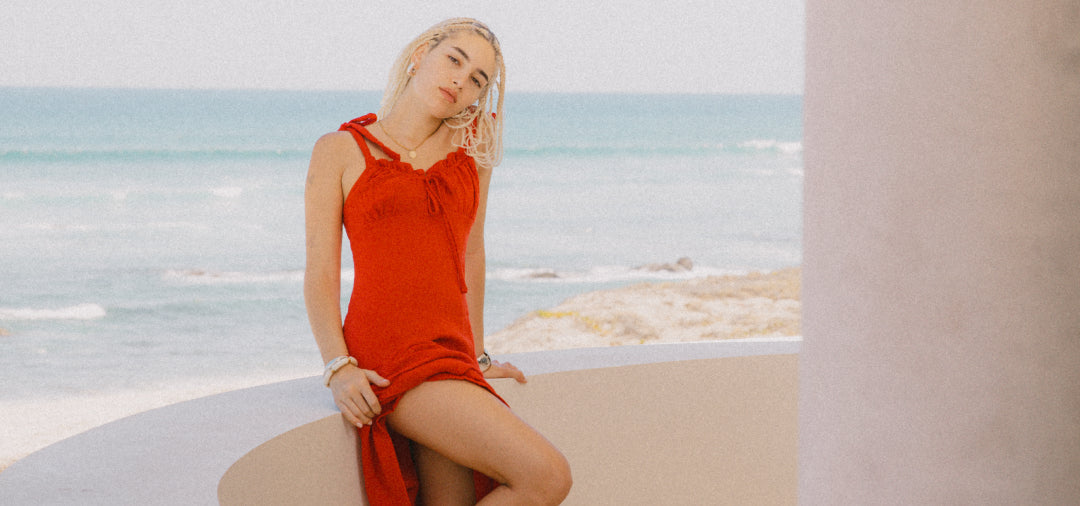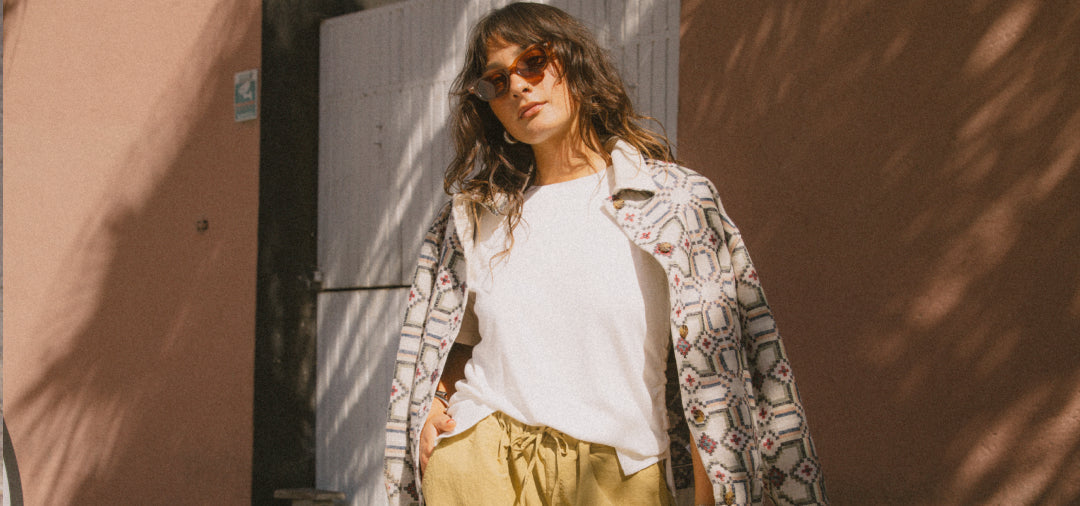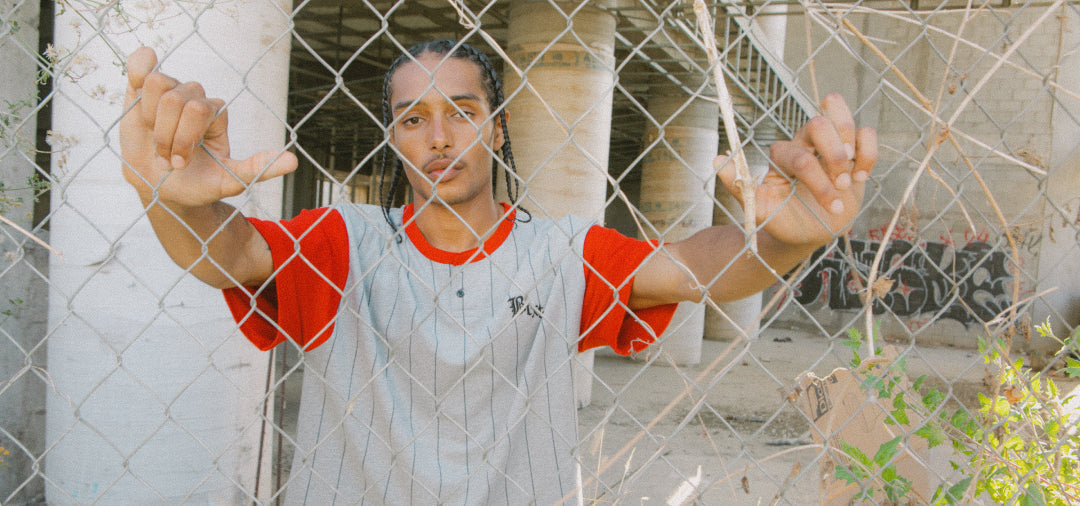Let’s look more closely at the hat itself.
Every part of your hat serves a purpose.
It either adds comfort, provides a good fit, or makes the hat (and you, the wearer) look good.
Whether it’s to protect your face, give structure to the headpiece, or add that extra touch of personality and style, the different parts of a hat come together to create a lasting, classic headpiece.
Awareness of what makes up a hat’s anatomy contributes to the overall hat-wearing and hat-styling experience, helping you distinguish between similar hats such as a trilby and fedora or a href="/it/collections/caps">flat cap and a href="/it/collections/caps">newsboy cap.
Women's hat styles and different types of men’s hats all depend on seamless, well-crafted harmony between each part of the hat.
Knowing what hat parts there are guides you in purchasing and showing off a culturally elegant hat or cap that fits you well.
Hat Terms to Know
Before we discuss the specific parts of a hat, let’s cover some of the essential terms used in relation to hats.
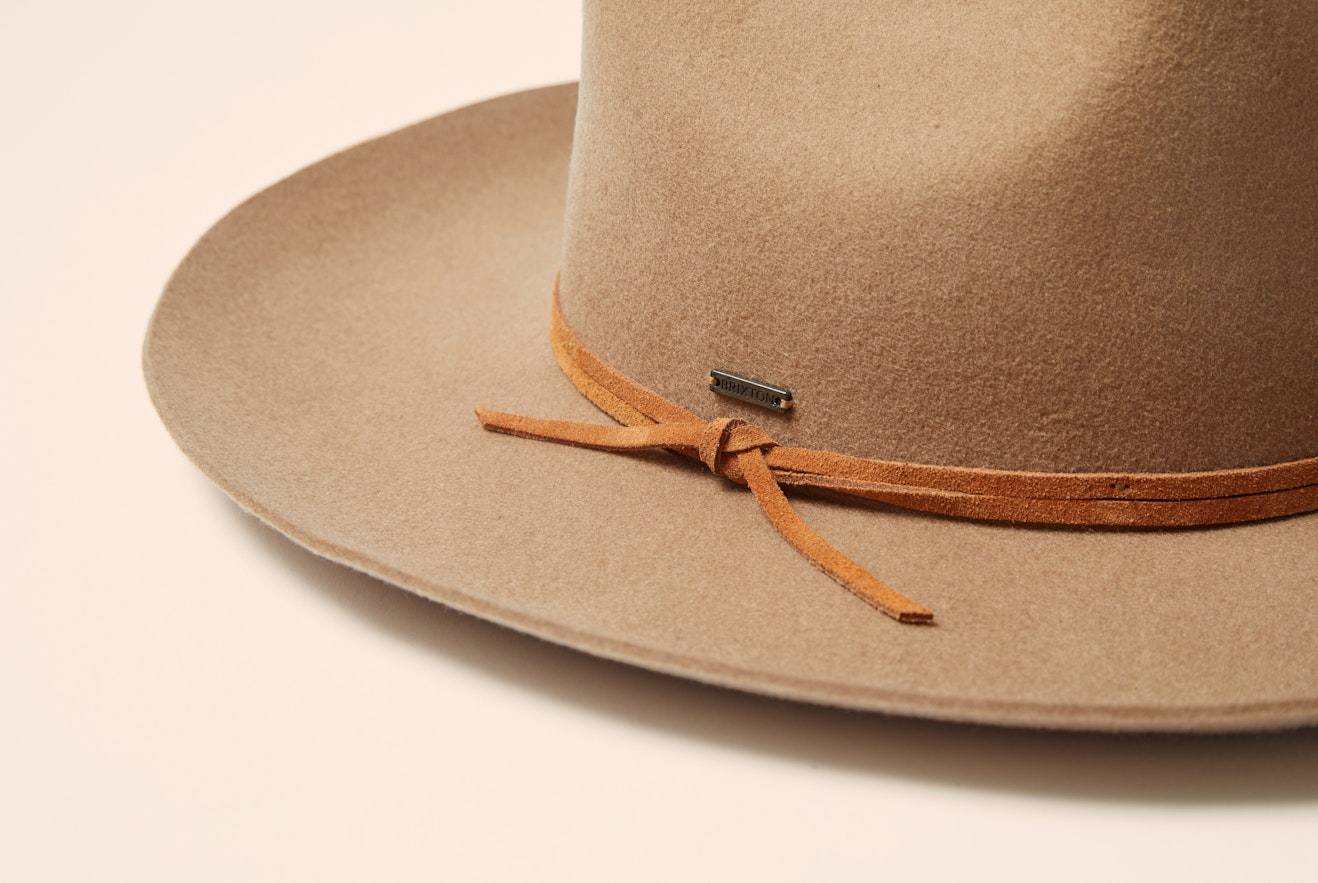
- Brim: The ledge of the hat, which protrudes from the crown’s base and provides shade for the wearer’s face, head, and neck.
- Underbrim: The underside of the hat brim.
- Liner:The inside lining of the hat. Often made of satin, silk, velvet, or cotton.
- Sweatband: Sometimes called the inner band, and made of leather or synthetic leather-like material. This band helps ensure a good, comfortable fit, keeps the hat in shape, and removes sweat from the wearer’s head.
- Bill: The stiff protruding part that shields the wearer’s eyes in a cap. Sometimes called a visor.
- Hat decoration/Hat accessories: Embellishments that decorate the hat and add flair and style, such as feathers, hat bands (made of ribbon, leather strips, or braided cord), beads, or buckles.
- Crown: The top part of the hat that sits directly on the wearer’s head.
- Tip: The top part of the crown.
- Pinch/Dent/Crease: The indentions made along the front, back, and sides of the crown in certain hats, such as fedoras.
- Flange: The overall shape and curve of the brim, as viewed from the side or front to back.
Keeping these terms in mind, let’s take a look at the different parts of a hat.
The Different Parts of the Hat
Each individual part of a hat comes with its own distinctive characteristics to form a complete, elegant, and cultured headpiece.
The Brim
The hat brim is the horizontal part of the hat. It may be turned up, down, or up in the back and down in front (called a “snap brim”).
The Crown
This is the vertical part of the hat, which directly covers the wearer’s head. Sometimes, the crown is styled with creases or pinches for different purposes and fashion statements.
The Band
More for decoration than anything else, the hat band is a strip of material that goes around the base of the crown, just where the crown and brim meet.
The Lining
The soft material that lines the inside of the crown both protects the hat from sweat and helps it keep its shape. This hat part is crucial to the durability and performance of a hat, and should be cleaned regularly.
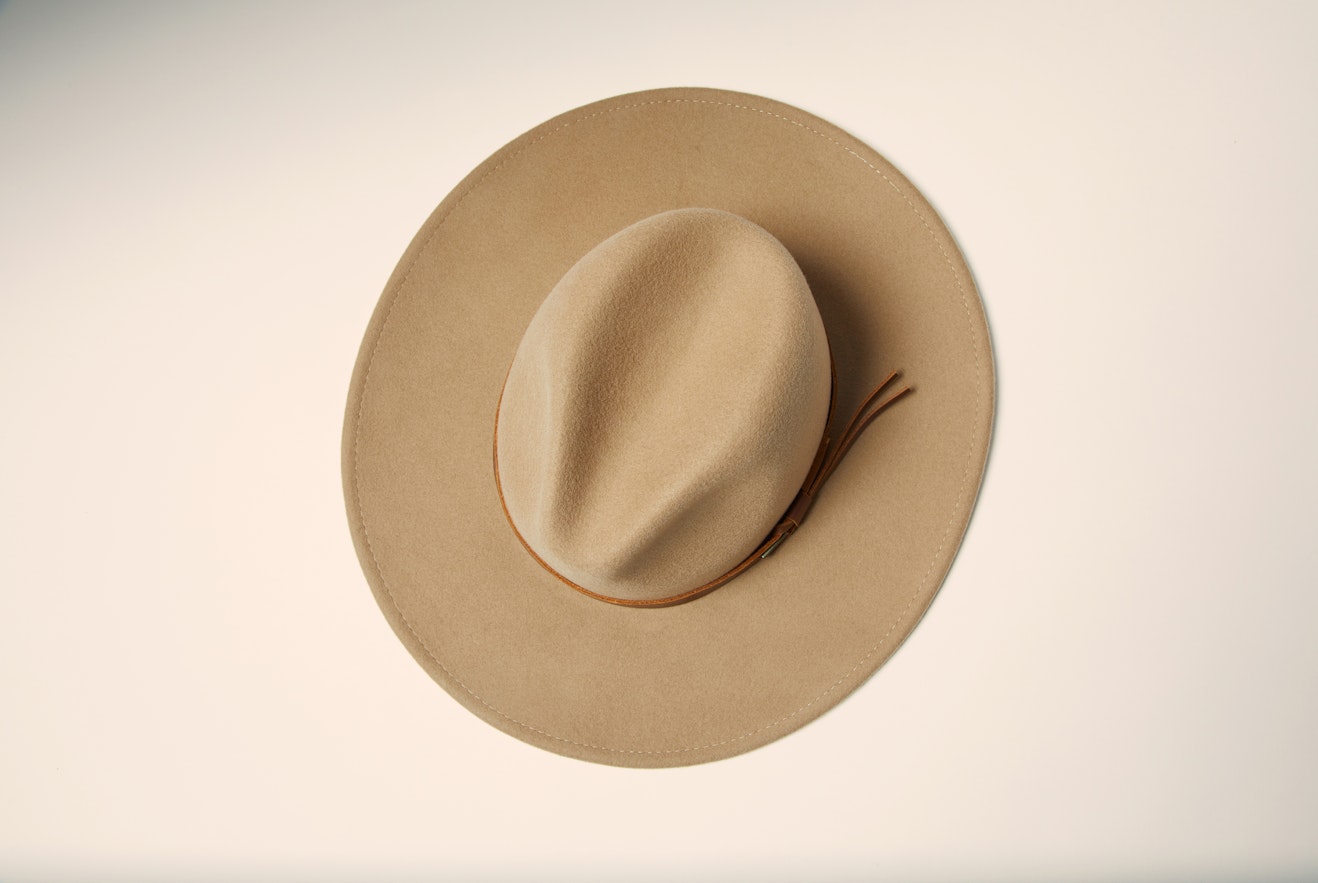
Distinctive Hat Crown Shapes
Different crown shapes create very different looks for different hat styles.
Here are several of the most common hat crown shapes, what they look like, and which types of hats they are related to.
Center crease: Also called a center dent, these crowns have a single crease down the center of the crown. A popular and versatile creasing style, many fedoras and western hats feature this hat crown shape.
Diamond: Viewing this crown shape from the top, the crease looks like a diamond. Elegant with more depth than a center crease, wool fedoras and some western hats feature this crease.
Open: Round open crowns have no creases at all. With the dome-shaped hat crown, this hat style is easy to spot, and helps give most floppy hats their signature look and flexibility.
Teardrop: Teardrop crowns are pointed at one end of the hat and more rounded at the other. Many wide-brim fedoras sport this crown shape.
Telescope: Alternative names for this type of hat crown shape include flat crown or flat top, they have a simple circular indentation that is characteristic of porkpie hats.
Common Hat Materials
Hats are used for various purposes—for protection, fashion, distinction. The wide variety of materials and fabrics used to make the many different hats reflect this headpiece's versatility.
Cotton
Hats made with cotton are durable, breathable, and easy to store and take care of. Flat caps are an example of hats made with this material. Cotton hats come in any and all colors and are usually softer than hats made with straw or felt.
Felt
Sturdy yet soft, wool and fur felt is made by taking wool or fur fibers, pressing them together, and applying heat and moisture. This process makes the fibers interlock tightly together, creating a durable fabric-like material that holds its shape easily. Brixton’s hats are made with pure, Australian wool.
Straw
Depending on the straw type, straw hats can vary in strength, durability, and color. When considering a straw hat, it is important to note the tightness and evenness of the weave pattern, which is a good indicator of the quality of the hat.
Toyo/Paper Braid
Constructed of finely woven paper material, hats made of toyo are extremely breathable, light, and reasonably durable. They are also inexpensive.
Synthetics
Using manmade fibers produced through chemical processes, synthetic textiles often create timeless headpieces that can stand the test of time. Polyester, nylon, acrylic, and rayon are examples of commonly used fibers, and are all durable and washable but may not be as breathable as hats made with natural materials.
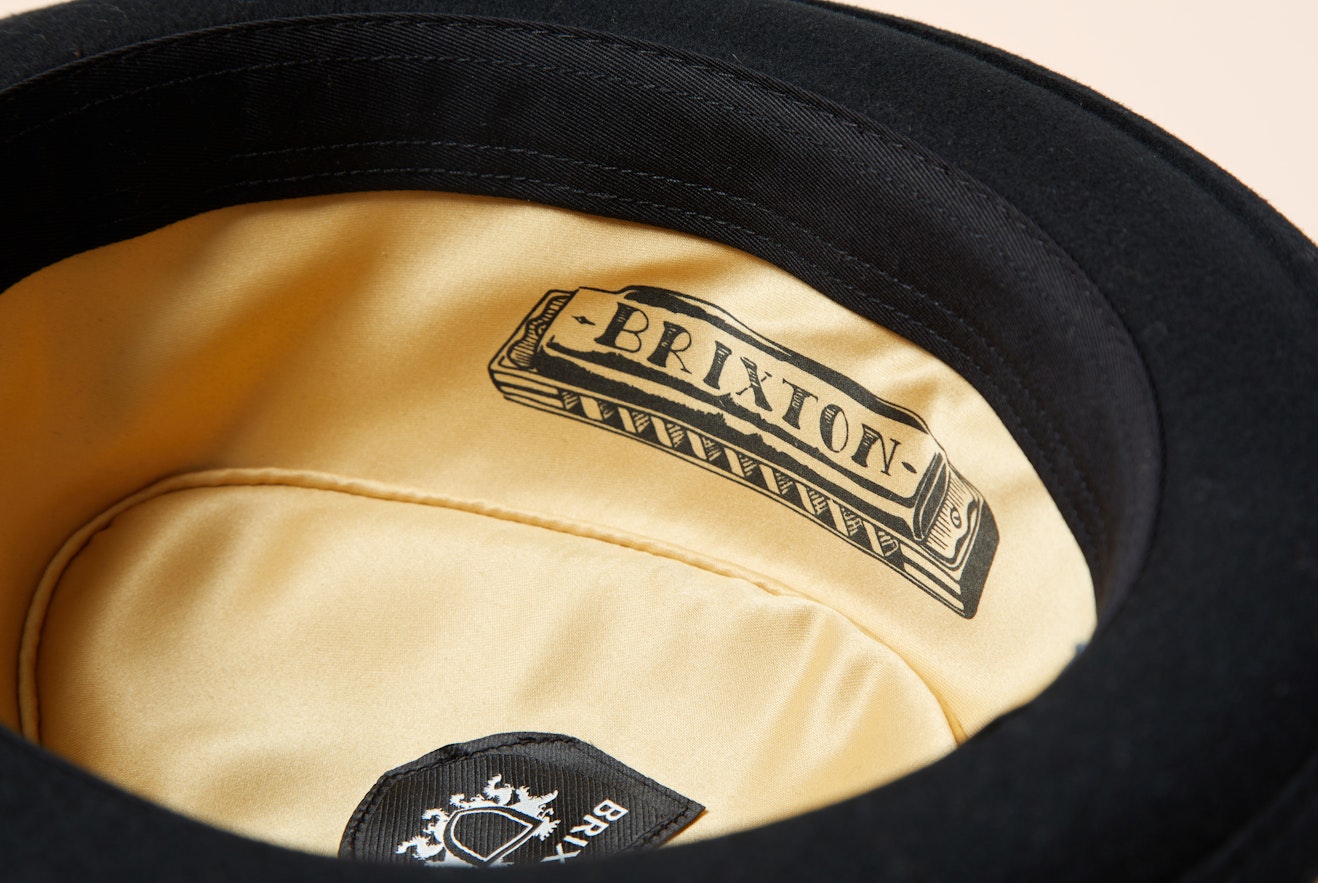
Hat Anatomy with Brixton
Finding a hat with perfectly crafted, precise hat parts that come together smoothly into a stylish look can be hard. But not with Brixton!
We take pride in sourcing the best materials to create our hats, such as 100% pure, Australian wool. Our headpieces are made in modern, elegant styles, with each area of the hat meeting our high durability, versatility, and elevated style standards.
Now that you know the ins and outs of hat anatomy, it’s time to show off every part of your Brixton hat along with your next outfit, from the tip of the hat to the crown, all the way to the hat brim! Throw in a hat decoration or two to bring your personal style to life with our modern hat classics.



